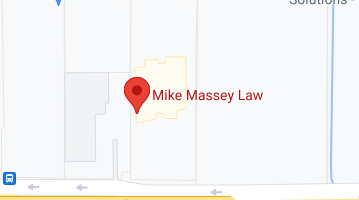In Texas, the average cost of a private room in a nursing home is $7,092 a month. A semi-private room averages $5,125. How can people of average means afford nursing home care in Texas and still preserve their assets for their spouses and families? A Texas elder law attorney can help.
When should you begin nursing home pre-planning? What does nursing home pre-planning entail? How will a Texas nursing home planning lawyer help you? Keep reading this brief discussion of nursing home pre-planning for the answers that you and your family may need.
Can You Qualify for Medicaid Benefits?
People who have worked all of their lives to leave something for their loved ones do not want a nursing home to take all of their savings. Planning for future nursing home care includes both insurance and financial planning, although long-term care insurance options are limited.
Medicaid coverage is not available to you until the value of your assets is down to about $2,200. The purpose of nursing home pre-planning is to make you qualified for the Medicaid benefits that will pay for your nursing home expenses while simultaneously protecting your assets.
You can’t give away assets for the purpose of qualifying for Medicaid within five years of applying for benefits. If you place your assets in a trust or give away any of your assets within five years of your application for Medicaid care coverage, those assets will typically be counted as yours and will generally count against you for qualification purposes.
This is called the five-year Medicaid “look-back” period. In order to qualify for Medicaid benefits, you may need to give away almost all of your assets – or set up a trust to own your assets – five or more years before you need nursing home care and apply for Medicaid benefits.
What is an Irrevocable Income Only Trust?
One of the options that many people in Texas choose when they pre-plan for nursing home care is to set up a special type of Irrevocable Trust. Certain types of Irrevocable Trusts may protect your assets from paying for your nursing home care so that your assets instead can be left to your beneficiaries.
A revocable trust can’t help you. Assets transferred into a revocable trust are considered your personal assets, but five years after you transfer assets into certain types of qualifying irrevocable trusts, those assets will be considered trust property rather than personal property and are not counted toward your Medicaid eligibility.
Irrevocable Trusts have increased in popularity in recent years for nursing home pre-planning purposes because they often will not only help you maintain your eligibility for Medicaid benefits, but upon your death, your trust assets should be able to transfer to your beneficiaries without the inconvenience of going through the probate process.
Are There Other Options for Nursing Home Pre-Planning?
An irrevocable trust can be a helpful tool for nursing home pre-planning, but in order to protect your assets from being counted against your Medicaid eligibility, you must set up an irrevocable trust at least five years before you need nursing home care.
You should also understand that any assets you transfer into a nursing home pre-planning irrevocable trust will no longer be available to you. Depending on how the trust is structured, you may have the right to income generated by irrevocable trust, but you may not access the actual assets you have transferred. Remember that there are dozens of types of irrevocable trusts, so make sure to work with a Texas attorney who understand nursing home pre-planning so that you might have the opportunity to be eligible for medicaid benefits in the future at some point.
There is no single nursing home pre-planning strategy that’s right for everyone. After discussing and considering your finances, needs, and options, a Texas nursing home planning lawyer can prepare a personalized nursing home plan that protects your assets and meets your needs.
Have your nursing home pre-planning handled by a Texas planning attorney who is familiar and experienced with Texas Health & Human Services and with Medicaid’s complicated requirements and regulations.
What if Your Family Member is Already in a Nursing Home?
Is there a way to protect a family member’s assets if that person is already residing in a Texas nursing home? The best way to protect a loved one’s assets when that person is already in a nursing home is with:
- a good Texas elder law attorney
- a good durable power of attorney that empowers the attorney-in-fact to protect the assets
What Can You Do to Protect Your Assets Now?
If you are healthy now, and if you do not expect to need nursing home care or long-term health care for some years yet, you might consider these options for long-term health care planning:
- Give away most of your assets before the five-year Medicaid “look-back” period begins. You can give away assets directly or set up a trust to receive your assets. Most people don’t just like to give away their assets because that may be too risky and those gifted assets then become subject to the recipient’s creditors, estate and future ex-spouse.
- Buy annuities or life insurance policies with long-term care insurance riders, which might possibly be less costly and more flexible than traditional long-term care insurance, but each case is unique so speak with an insurance agent.
- Prepare a comprehensive estate plan with the advice and help of a Texas estate planning attorney who has experience with long-term health care and nursing home pre-planning.
How Do Planning Lawyers Help Texas Families?
Estate planning lawyers and health care planning lawyers in Texas help families and individuals plan for the future, protect their assets and properties, and provide financial security for their loved ones now and in the years ahead.
A Texas estate planning attorney can:
- address your health care planning and estate planning concerns
- explain your options and advise you throughout the process of planning your estate
- provide the health care and estate planning suggestions, insights, and services you need
- prepare a comprehensive and effective estate plan for you and your family
When Should You Speak to a Planning Attorney?
The details of your long-term health care plan and the details of your estate plan will depend on your current finances as well as your family situation, but whatever your current circumstances may be, if loved ones are counting on you, the time to consult an estate planning attorney is now.
An effective estate plan is a must for families, business owners, and for anyone who wants to prepare for the future and provide for their loved ones. We can’t know what may happen tomorrow, but we can prepare for it today with the right health care and estate planning.
The time to plan for the future is now. Whether your concern is nursing home pre-planning, providing for your loved ones, or ensuring that your wishes are honored upon your death, make the call promptly to a Texas planning lawyer to learn more – and to begin planning for the future.









